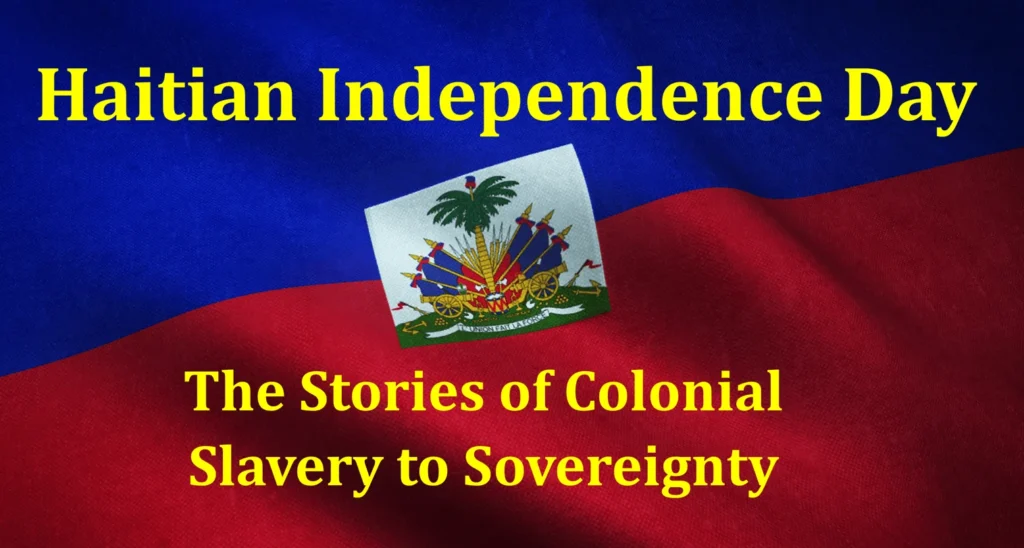
Introduction to Haitian Independence Day
Haitian Independence Day is of importance as it marks the celebration of a nation that overcame the horrors of slavery and gained self-governance. Every year on January 1st this day represents the courage and unwavering resolve of its people, in their struggle, for freedom. To truly understand the significance of this event it is crucial to explore its journey.
It is a nation located on the side of Hispaniola Island has experienced a past influenced by centuries of colonization. In the beginning it was home, to communities. When powers arrived in the late 15th century the island entered a period of upheaval. It became a center, for sugar and coffee plantations, which unfortunately led to the enslavement and exploitation of individuals.
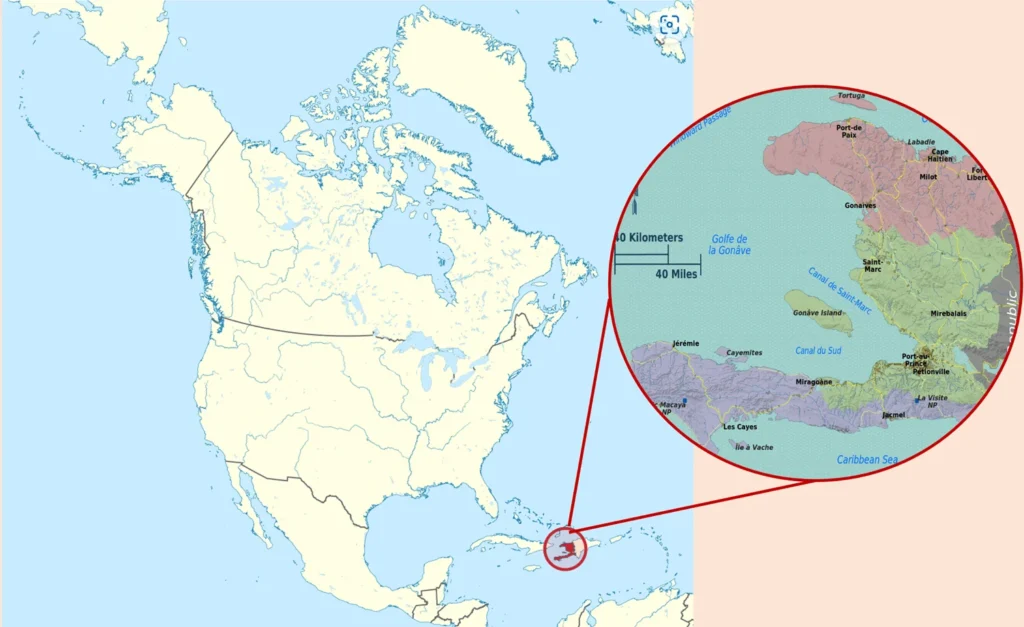
Prelude to Independence: The Haitian Revolution
Slavery and oppression in Saint-Domingue
During the era, in Saint Domingue, which was known as Haiti under rule the institution of slavery was ruthlessly maintained. African individuals endured suffering and degradation. The plantation owners ruled with authority harshly punishing any acts of resistance or uprising. The enslaved community endured labor conditions, violence and a complete disregard, for their human rights.
Emergence of resistance movements
In the midst of the era of slavery glimmers of resistance started to appear. Enslaved individuals, motivated by the principles of the French Revolution and driven by their desires for liberation formed groups. These organizations grew as centers of activism and defiance sowing the seeds for what would develop into the Haitian Revolution.
Key figures and leaders of the revolution
The Haitian Revolution was led by inspiring individuals who brought together the people to resist against their oppressors. Toussaint Louverture, a slave who gained recognition for his skills and strategic genius played a crucial role in this revolution. Alongside him notable figures, like Jean Jacques Dessalines, Henri Christophe and Alexandre Pétion also made contributions leaving a lasting impact, on its path to freedom.
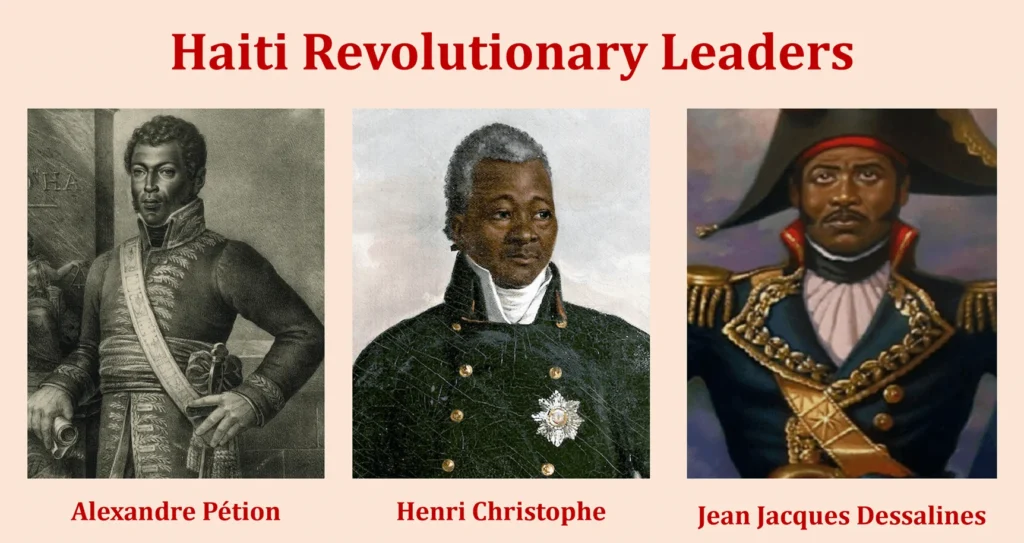
The Struggle for Freedom
Unprecedented slave uprising
The Haitian Revolution is a testament, to the strength and resolve of the people. It was an uprising that had an impact on the colonial world. One significant event that sparked the revolution was Boukman’s Rebellion in 1791. Led by the voodoo priest Dutty Boukman this rebellion embodied a spirit of defiance. Laid the groundwork, for the revolution that followed.
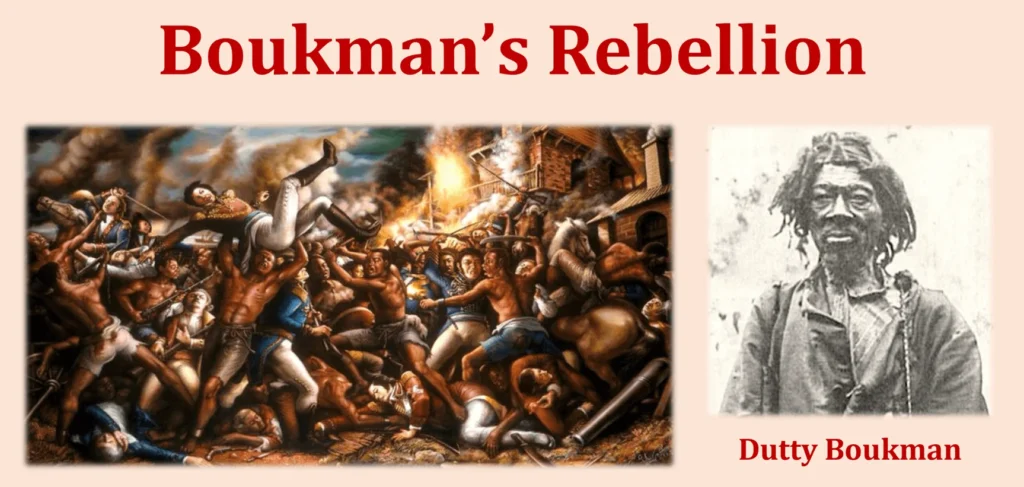
The catalyst of the French Revolution
The Haitian Revolution was heavily influenced by the French Revolution, which promoted the principles of liberty, equality and fraternity. The enslaved people, in Saint Domingue found inspiration in the French Revolutions plea, for freedom and equality. They saw it as a chance to confront their oppressors and strive for their emancipation.
Formation of diverse alliances
The Haitian Revolution saw the formation of diverse alliances, uniting individuals across racial and social lines in their quest for independence.
The leadership of Toussaint Louverture
Toussaint Louverture emerged as a strategic leader adeptly navigating the complexities of the revolution. His leadership brought together a shared vision inspiring a sense of purpose and resolve, among the revolutionaries.
The significance of mulatto and free people of color
The involvement and active participation of mulatto and free people of color played a role in this Revolution. Recognizing their struggle against oppression alliances were formed across lines breaking down barriers and fostering unity to combat external forces.
Uniting against adversaries
The fight for freedom extended beyond challenging powers alone. It faced opponents such as France, Spain and Britain all determined to suppress the revolution. Despite these challenges the Haitian people remained united exhibiting unwavering determination in their quest, for liberation.
The Road to Independence
Suppressing French forces
The journey towards Haitian independence was not an easy one. The Haitian people had to use guerilla tactics and strategic warfare to suppress the French forces. They found themselves up against a empire that was resolute, in its determination to retain dominion over its prized colony.
In their quest, for independence the Haitians employed guerrilla tactics employing hit and run strategies, ambushes and unexpected assaults. They capitalized on the challenging landscape and their intimate knowledge of the surroundings to outsmart the trained soldiers. These strategies allowed the Haitians to overcome the odds and strike back at the forces.
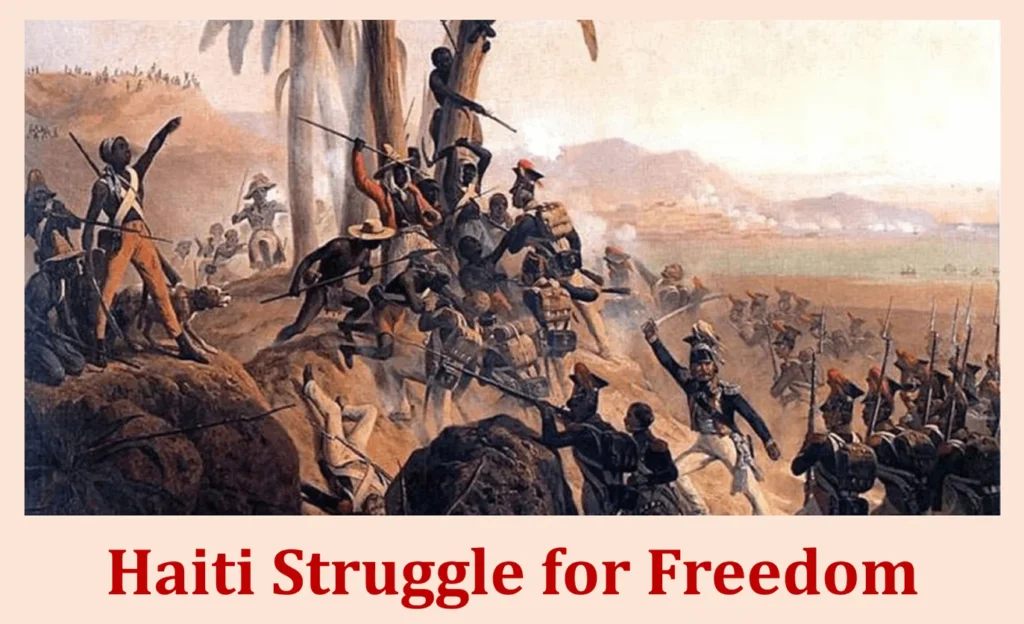
The battles, for dominance over the colony were intense and bloody. The Haitians fought with unwavering determination and incredible courage. Each battle played a role in the struggle for independence as both sides fiercely competed for control. The Haitians demonstrated their skills. Made it clear that they would not bow down to their colonizers oppressive rule.
Declaration of Independence
The establishment of this country marked a milestone in the battle against colonialism. On January 1,1804 Jean Jacques Dessalines declared its independence establishing it as the world’s republic. This proclamation symbolized years of struggle, sacrifice and resilience coming together.
Its independence became a source of inspiration for movements. It demonstrated that even those who suffered under oppression could rise up against their oppressors and fight for liberation. The success of the Haitian revolution instilled hope and empowerment among enslaved individuals globally offering them glimpses of breaking free, from chains.
The Legacy of Haitian Independence
First Independent Black Republic
The establishment of this country, as the worlds republic, independent and free carries immense significance for oppressed communities worldwide. The success of this revolution shattered the belief in superiority and challenged the deeply entrenched system of slavery and domination.
Its independence had implications for the abolitionist movement. It provided proof that enslaved people had the capacity to govern themselves and thrive without being guided or controlled by their masters. The Haitian revolution played a role, in shifting opinion and fueling the international movement to eradicate slavery.
Challenges and obstacles faced
Despite gaining independence this country faced challenges and obstacles during its years, as a sovereign nation. Economic boycotts and isolation imposed by powers and other countries posed a threat to its economic stability and hindered its growth. The global powers were hesitant to support a nation led by leaders as they feared that its success would ignite revolutions and uprisings.
Internal power struggles and political instability added complexity to Haiti’s path towards progress. The ongoing battle for power within the nation resulted in leadership changes and periods of unrest. These difficulties slowed down its development making it challenging for the country to establish a foundation, for its endeavors.
Inspiring the fight against slavery
The impact of the Haitian revolution, on colonial movements was profound. It served as a ray of hope for oppressed populations providing them with a roadmap for resistance and liberation. Haiti became a symbol of defiance against powers and an inspiration for those fighting for their freedom.
The success of the Haitian revolution and the establishment of a nation led by people ignited a strong wave of opposition to slavery and colonialism. It instilled in enslaved individuals the belief that freedom was within reach motivating them to fight for their rights and dignity.
The significance of independence extends beyond its social implications. It holds symbolism in terms of identity and self-determination. The unwavering struggle and triumph over adversity, by the people continue to inspire generations to embrace their heritage stand against oppression and strive towards a brighter tomorrow.
Conclusion & FAQs
Recap of the journey from colonial slavery to sovereignty
The tale of Haiti’s independence is truly remarkable showcasing bravery, resilience and the triumph over challenges. The path, from being enslaved under rule, to achieving sovereignty was filled with violence and sacrifice. It ultimately resulted in the establishment of the world’s first Black republic. This transformative journey began during the mid 19th century when the oppressed people of Saint Domingue, a colony but now known as Haiti rose up against their oppressors.
Motivated by a desire, for freedom, the enslaved Haitians, led by individuals like Toussaint Louverture and Jean Jacques Dessalines fought relentlessly against the oppressive French government. Their struggle was not about escaping slavery but also asserting their humanity and their right to shape their destiny. After enduring battles making sacrifices and displaying a determination to liberate themselves, they ultimately succeeded in their quest and proclaimed Haiti as an independent nation on January 1st, 1804.
Reflection on the global impact of Haiti’s struggle
The impact of the Haitian Revolution went beyond challenging ideas of superiority and the legitimacy of slavery. It dealt a blow to the institution of slavery inspiring enslaved individuals and abolitionists worldwide to fight for their freedom.
The Haitian struggle, for independence set an example that influenced liberation movements not in Latin America and the Caribbean but in other parts of the world. The bravery and unwavering determination shown by revolutionaries became a symbol of hope igniting a spirit within oppressed communities and empowering them to confront powers. Figures such, as Simon Bolivar in South America and Nelson Mandela in South Africa demonstrate the influence of the Haitian Revolution on shaping history.
Haitian Independence Day symbolizes resilience and the victory of freedom over oppression. The path from enslavement to self-rule was filled with difficulties. The people of this country persevered inspiring liberation movements, across the globe. As it faces challenges it is crucial to remember their spirit and support their path toward a brighter future.
Frequently Asked Question (FAQs)
Why is Haitian Independence Day important?
Haitian Independence Day carries importance not for Haiti but also, for the entire world. It stands as a symbol of a nations spirit as its people vehemently rejected the shackles of slavery and fought relentlessly for their freedom. This day serves as a reminder that freedom’s a right that cannot be extinguished regardless of the level of oppression imposed upon it. By commemorating Haitian Independence Day, we. Show respect to the bravery and resilience of its people acknowledging their commitment, to the ideals of liberty.
How did the Haitian Revolution shape liberation movements?
The Haitian Revolution was a moment in history that profoundly influenced liberation movements. It shattered the notion of supremacy. Demonstrated that individuals of African descent could successfully overthrow oppressive colonial powers. The revolution in Haiti also ignited a spark among enslaved individuals throughout the Americas inspiring them to rise up and demand their freedom. It served as a reminder that resistance against oppression was not futile; victory was indeed achievable.
This transformative shift in thinking and action had reaching implications extending its influence on movements, in Latin America where independence struggles aimed to replicate the success witnessed during the Haitian Revolution.
The principles of liberty and fairness advocated by the revolutionaries resounded within the souls and thoughts of individuals opposing colonialism and imperialism greatly influencing the trajectory of history, for generations.What difficulties has Haiti encountered since achieving independence?
Despite the milestone of gaining independence Haiti has faced a multitude of challenges, throughout its history. The attainment of sovereignty did not immediately alleviate the rooted economic inequalities that had plagued the nation for centuries. After becoming independent Haiti found itself facing hostility from the community as former colonial powers sought to isolate and punish the country for daring to challenge the institution of slavery.
Furthermore, divisions and power struggles have hindered the nations progress. In its journey after independence Haiti has grappled with issues such as instability, corruption, economic hardships and external interventions. Additionally natural disasters like the earthquake in 2010 have added pressure, to the country’s efforts to advance.
However, despite these obstacles Haiti’s people remain resilient. Determined. They continue to work towards rebuilding their nation strengthening their institutions and creating a future for themselves and generations to come.
